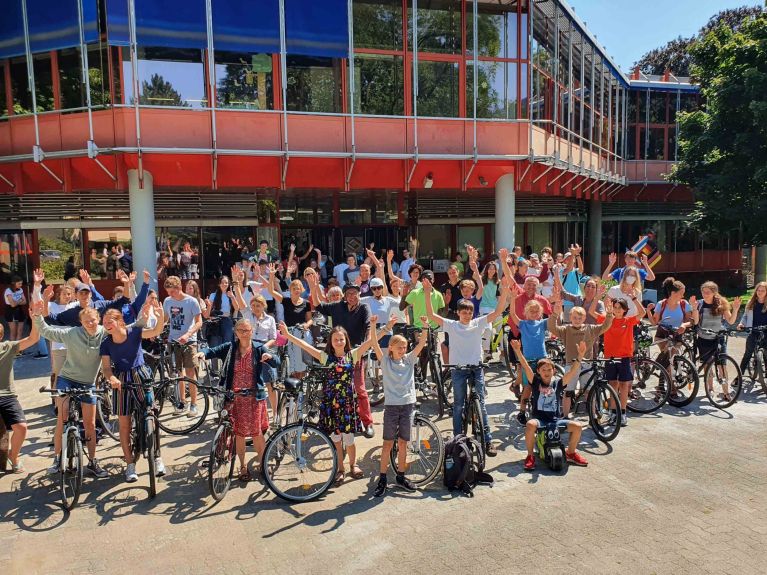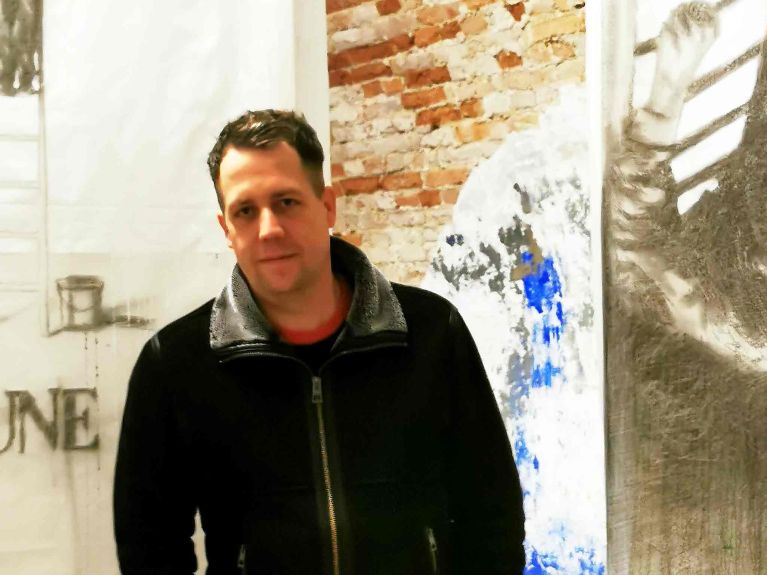Franco-German friendship at schools
At Franco-German secondary schools, teaching and everything else is conducted in the two languages. Let us introduce you to one of these bilingual schools.

At this school, pupils and staff alike can be heard switching constantly between the two languages. As Joachim Schmelz, head teacher at the Franco-German secondary school (Deutsch-Französisches Gymnasium or DFG for short) in Freiburg im Breisgau explains, it is “quite normal for people at all levels - in the staffroom, in the head teacher’s office, in the secretary’s office and in the classrooms - to switch languages all the time”. The completely equal status enjoyed by both languages is also reflected in the running of the school, responsibility for which Schmelz shares with his French colleague Miguel Rubio. And as Rubio adds, it is not only a matter of having two languages: “It is very exciting to run a bicultural school with a mixture of both cultures.”
Franco-German secondary schools are enshrined in the Élysée Treaty
There are five Franco-German secondary schools in the two neighbouring countries. Three are to be found in Germany, in the cities of Freiburg, Saarbrücken and Hamburg. In addition, there are two schools in France, one in the small town of Buc near Paris and one in Strasbourg. The initiative for these special schools came courtesy of the historic Élysée Treaty that was signed on 22 January 1963 by the then German Chancellor Konrad Adenauer and French President Charles de Gaulle. The agreement is seen as a milestone in terms of the reconciliation and close partnership between the two countries in Europe. The treaty placed particular emphasis on young people, who were said to play the “determinant role in the consolidation of Franco-German friendship”.

To this day, the Franco-German secondary schools remain true to this tradition. To mark Franco-German Day, which is celebrated each year on the anniversary of the Elysée Treaty, the DFG in Freiburg for example organises numerous events: from historic lectures about Franco-German relations and careers advice for bilingual jobs to panel discussions on the role played by a European identity. Franco-German Day is, on the one hand, a very special occasion for the schools, the two head teachers explain. At the same time, Rubio stresses: “That said, we celebrate Franco-German Day all year round, from 1 January to 31 December.”
Getting to know the culture of the neighbouring country

Manuel Madey has now experienced the DFG in Freiburg from two different perspectives. 20 years ago he did his Abitur in German and French there, and today he teaches German, history and civics at the school. Madey explains that the older he becomes, the more he realises just how enriching and shaping it was for him to attend a bicultural school. This is something he also attempts to convey to his students. “You profit above all from the friendships. And if you spend every day with French and German classmates, this gives rise to connections and affinities with the culture.”
After leaving the school, pupils can also profit from the bicultural exams they took there. Anyone who has passed their German-French Abitur will speak at least two languages virtually fluently and will have excellent chances on the international employment market. Former pupils work in all kinds of different sectors in Germany and France, though also in places like Canada or the USA.
Head teacher Joachim Schmelz not only sees practical benefits for the pupils, but also stresses the importance for society of working together in two languages and cultures: “Especially in the current political context, the great thing about this type of structure is that it become the norm to look beyond your own nose. And that is what our society urgently needs.”

